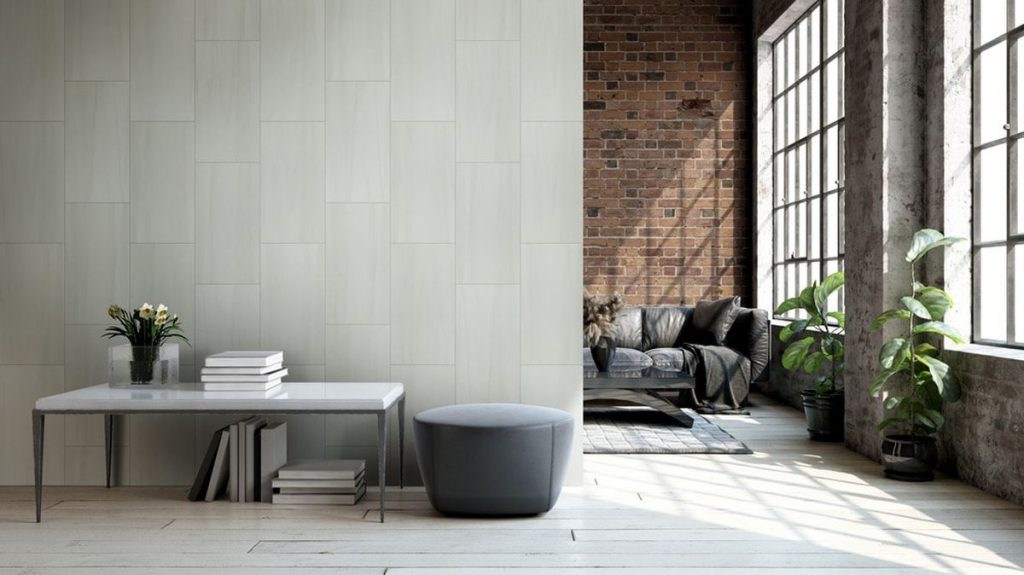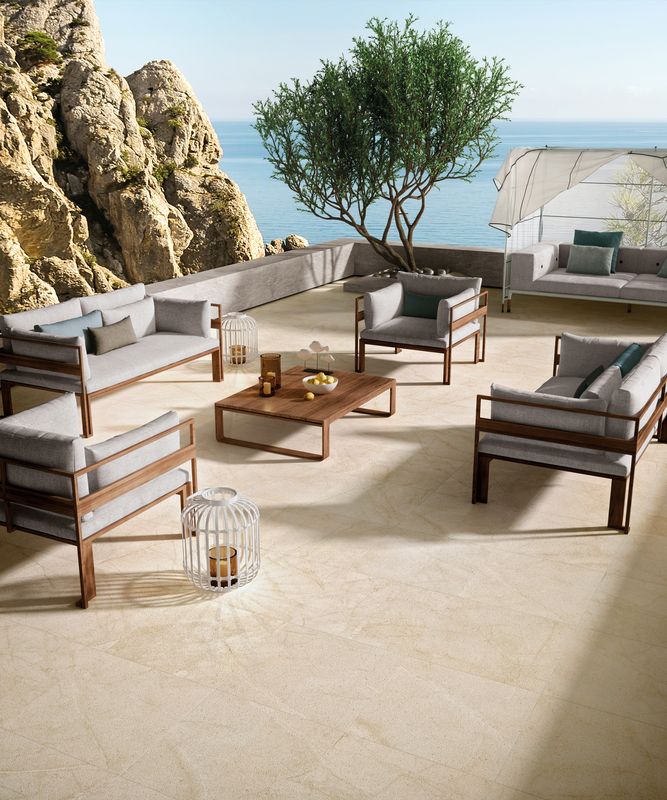Limestone Tile Flooring Pros and Cons

Do you like the look of limestone floor tiles? Or is it the affordability of this natural stone you’re interested in? Whatever your reason, many homeowners are drawn to this material and decide to add some classy limestone flooring tiles to their properties. If you’re on the fence about which tile material to choose for a new home or your next renovation, read through this list of pros and cons for limestone flooring.
Pro: Affordability Compared to Other Types of Natural Stone
Limestone tiles are made of natural stone, and it’s one of the most affordable options if you want to avoid artificial materials for your flooring. Limestone is a better bargain compared to something like granite or marble. You’ll also find a variety of price points when you’re shopping for limestone tile, ranging from under $4 per square foot to $12 per square foot.
Con: More Expensive Than Artificial Materials
If you want to keep your flooring budget as low as possible, you’ll probably go with, porcelain, vinyl, ceramic flooring tiles, or other synthetic options. You can find vinyl tiles, for example, for under $2 per square foot. These more affordable materials are appealing for commercial properties where ease of placement and price are priorities.
Pro: Appearance and Texture
The look of limestone is one of the reasons it’s so popular. It’s soft and light, providing a warm and earthy tone wherever it’s placed. This makes it particularly appealing for outdoor spaces. But limestone looks excellent in kitchens, bathrooms, and any other area you want to brighten with natural stone. Indeed, limestone has been a favorite for millennia and is undeniably beautiful.
In addition, since limestone isn’t manufactured, each tile cut from this natural resource is unique. If you choose limestone tiles, you’ll enjoy a mosaic of subtle color and pattern differences across your flooring.
Con: Maintenance
As with any type of natural flooring, proper sealing is essential. You’ll also have to take care to maintain the tiles to preserve their quality. This is another reason why synthetic materials are common in commercial properties — materials such as vinyl and ceramic are easier to clean and maintain.
For example, you have to be careful when vacuuming across limestone, as the vacuum could scratch the surface. Handheld vacuums are recommended, and you’ll also need to use a dry mop or broom to clean the tiles regularly. Be careful when sweeping as well. Pushing dirt and debris across the floors could scratch the tiles.
What Maintenance Is Needed for Limestone Flooring Tiles?
Your limestone tiles need to be sealed immediately once they’re installed. This will help keep dirt and liquids from entering the stone’s pores for the next two to five years. If a drop of water falls on the limestone and soaks into the material, you need to reseal the tiles. You can seal limestone tiles easily on your own.
To maintain your tiles daily, you’ll need to purchase some microfiber cloths and neutral cleaning products. Because limestone is vulnerable to acidity, you’ll need some pH-neutral products to clean your tiles. Look for cleaners specifically made for limestone or other natural stones. Chemical-laden detergents are known for making limestone look dull, so it’s essential you avoid such cleaners and clean up spills as soon as possible.
Why Does Limestone Need to Be Sealed?
Because limestone is a naturally porous stone, it’s susceptible to water damage. Acidic products, in particular, can ruin limestone, which is why you don’t usually see it in kitchen countertops. Sealant fills in the pores, prevents staining, and keeps your tiles in good shape.
Pro: Versatility
Limestone provides ample versatility in terms of price points and color options. Though all limestone has an earthy tone, you’ll find brilliant hues of beige, ivory, white, and gray. You can choose from rough- and smooth-grain tiles, and limestone cuts are available with straight or chiseled edges and in unique patterns.
Limestone tile looks good wherever it’s placed. The bathroom is a popular room for natural stones, and when properly cared for, limestone tiles look good in the kitchen, too. People also use them for outdoor spaces and walking paths and achieve astounding results.
Con: Ease of Placement

If you’re building a home or planning a renovation, you’ll probably have to hire professionals for help if you want to treat and place limestone. This tile type isn’t as suited for do-it-yourself projects as vinyl is, for example. Remember to calculate the cost of hiring contractors for this work when you’re budgeting for new flooring.
Pro: Improve Your Home’s Value
Limestone is valued because of its sophisticated, rugged appearance. The effect is so classy that limestone will improve your home’s resale value. Use stone tiles to create a walkway to your front door, or invest in a bathroom renovation that will significantly increase your property’s market value.
Con: Durability
Unsurprising for an expensive natural stone flooring a commonly asked question is, how strong is limestone?
Limestone is softer than other types of natural stone, such as marble. This means it’s not ideal for high-traffic areas, such as the kitchen. If you do want to place these beautiful tiles in a kitchen, a hallway, or other places you frequently walk through, be mindful of the risk of chipping, scratching, and breaking. You can repair some minor damages on your own, but you may need a professional replacement for a significant crack or a broken tile.
In addition to being mindful of high-traffic areas, you have to be careful when setting items down on limestone tiles. Heavy furniture placed carelessly, for example, could break, crack, or scratch the floor. Finally, since limestone is vulnerable to scratching and staining, you’ll have to keep a close eye on your children’s and pets’ activities on the tiles.
Overall, limestone tiles are a fantastic choice for a home. Though there are some drawbacks to consider, this material is affordable compared to other types of natural stones and can greatly improve your home’s value. Plus, limestone tiles are just gorgeous! Weigh these pros and cons carefully, but know that you have lots to look forward to if you go with limestone.
Resources:
